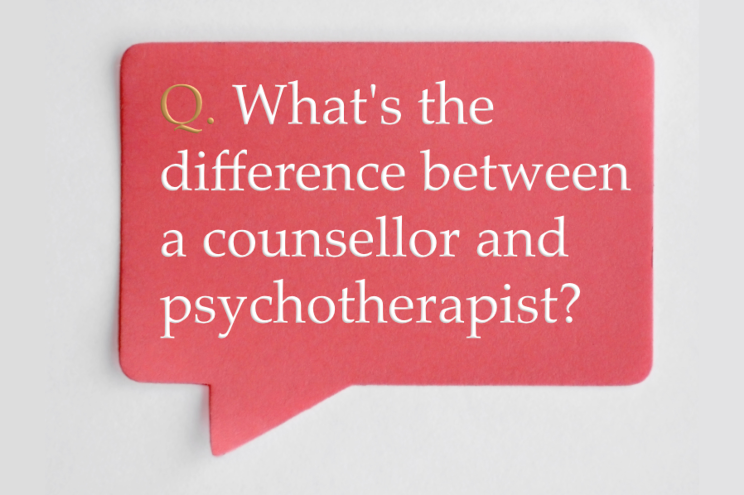Counselling and Psychotherapy - what’s the difference?
If you’re exploring therapy for the first time, then it can honestly be quite confusing. There are over 30 different types of therapy listed on the BACP’s ‘types of therapy’ page and there are many others they don’t mention. There is a huge amount of therapeutic jargon that gets used and even within the profession there is often debate about what different terms or labels mean.
One of the common questions I get asked is… what is the difference between counselling and psychotherapy? This is one of those hotly debated questions with every professional having a slightly different answer. In the UK there is currently a move between the different professional bodies to try and bring greater clarity to that question, but at the moment there is no clear answer.
Some would say that broadly speaking, counselling refers to shorter-term work, dealing with surface issues, requiring less training from the practitioner and psychotherapy is generally longer-term work dealing with deeper issues, requiring more in-depth training. In reality, there is much overlap between the two. It would be common for a counsellor working with a client to explore many deeper issues over a long period of time and in contrast there would be many psychotherapists that would work with clients on a short-term basis if that is what the client required.
As a member of the BACP, I default to their definitions who use the terms interchangeably. They state that “Counselling and psychotherapy are umbrella terms that cover a range of talking therapies. Counsellors and psychotherapists are trained professionals who will work with you over a period of time to help you develop a better understanding of yourself and of others.” This is how I have used those terms and use the term therapist to include both counselling and psychotherapy. My approach will very much depend on the client and their needs and I’ll draw on the method that best suits those needs.
Talking therapy is a very human process and each practitioner will work in a slightly different way, no two therapists will be the same, even if they describe themselves identically.
In my opinion, rather than getting caught up in how the practitioner might describe themselves, I think it would be helpful to work out what kind of approach you’re looking for and then to ask specific questions to clarify if they work in that way. For example, do they offer long-term work?
For some thoughts on how to find the right therapist for you, have a read of this previous post.







